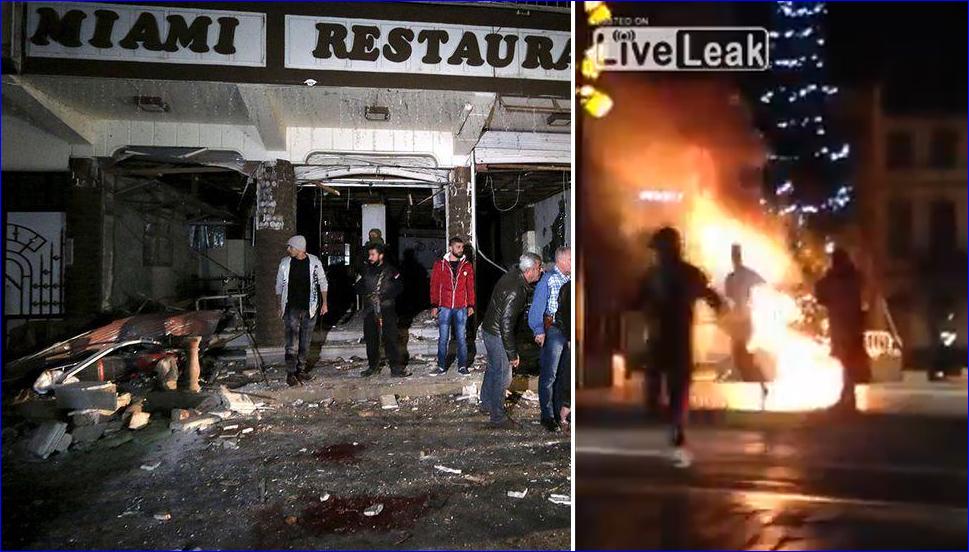


Stifling Christmas In Syria, the Islamic State "arrested, if not executed, some youths [five] in the city of Raqqa for befriending and greeting Christians on the occasion of Christmas." ISIS reportedly told the five youths that "they are being detained after an investigation [including their personal computers], found that they greeted the Christians and wished them a Happy New Year." When one of the youths tried to clear himself, an ISIS member replied: "Shut up! You accompany the Christians -- is that not so?" The five youths were then hauled to an unknown location. There has been no further information on their fate. ISIS was not alone. The governments of three countries -- Somalia, Tajikistan, and Brunei -- formally banned Christmas (celebrating its Gospel message, putting up trees, dressing like Santa Claus, and giving gifts). Transgressors can face up to five years in prison. Some Islamic clerics in Brunei stated: "Using religious symbols such as crosses, lighting candles, putting up Christmas trees, singing religious songs, sending Christmas greetings ... are against the Islamic faith." In Bangladesh, churches skipped traditional Christmas midnight mass because of the increasing number of threats against, and attacks on, Christian leaders. Although Christians constitute less than one percent of the Muslim nation, more than three dozen church leaders received death threats and at least four narrowly escaped attempts on their lives. Although not canceled, Christmas church services were tense and on high alert in the supposedly most "moderate" Muslim nation, Indonesia. More than 150,000 security personnel and others were deployed to safeguard churches around the country during Christmas and New Year's Eve celebrations. Days earlier, on December 20, police arrested six men who had bomb-making materials and jihadi literature. On December 25 in Iran, a group of about 10 Christians celebrating Christmas were verbally abused and arrested after plain-clothes government agents raided a private service in their home. Separately, on December 23, agents beat, handcuffed, and arrested a Christian man during a raid on his home. His books, computer, mobile phone, and a decorated Christmas tree were seized.
Christmas Carnage On December 24 in the Philippines, Muslim jihadis terrorized the Christian-majority nation after they seized and executed 10 Christians. A military spokesman said the terrorist attack was intentionally launched on Christmas Eve "to make a statement." On December 25 in Nigeria, the Islamic group, Boko Haram, slaughtered 16 Christians, including children. The jihadi group has been bombing churches and massacring Christians on Christmas Day for several years in a row. One of the deadliest attacks occurred in 2011, when the jihadis bombed a Catholic church during Christmas mass. They killed 39 and wounded hundreds. On Christmas Eve in the Democratic Republic of Congo, over 50 people of the Christian-majority nation were massacred by the Ugandan-based group, ADF-Nalu, which "has acquired in recent years the characterization of a jihadist movement." On Christmas Eve in Iraq, the Islamic State bombed ten Christian homes and a convent in the Assyrian village of Tel Kepe. Several people were injured. On December 30, members of the Islamic State bombed several Christian-owned restaurants in Syria; 16 people were murdered. Muslim governmental officials -- not "ISIS" -- in nations such as Brunei, Somalia, and Tajikistan continue openly and formally to express their hostility for Christmas and Christianity. And extremist Muslims -- not "ISIS" -- continue to terrorize and slaughter Christians on Christmas in nations as diverse as Bangladesh, Belgium, the Congo, Germany, Indonesia, Iran, Nigeria, Philippines, Syria, the West Bank, and even the United States.

or register to post a comment.